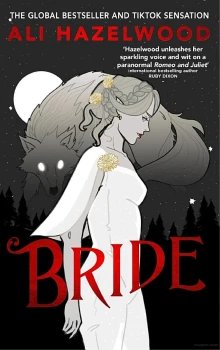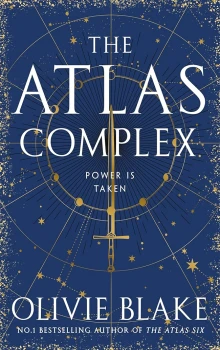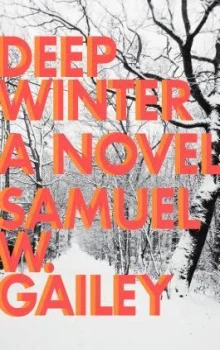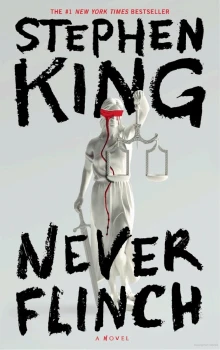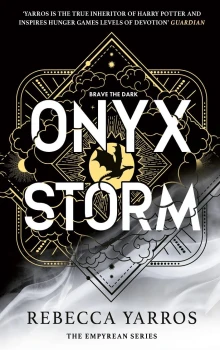23
The scrap of light crawled over Maureen’s face like a moving scar and startled her awake. She blinked at Hai a few times, took a swig from her flask out of habit, wiped her mouth, and said, “Why am I lookin’ at you?”
Hai nodded over at Sony, who was already up and ready to go.
“Oh yeah. Diamond crusade.”
The crew filed into the van and drove another hour in a post-wake-up stupor, this time with Maureen at the wheel. Grazina’s head rested on Hai’s shoulders as he watched Vermont float by, the land misting under telephone towers as the sun rose, goat and dairy farms unfurling around them toward mountains hung on every horizon. They passed Brattleboro, a sleepy town not yet wakened by the spring thaw, then drove further north, the air growing thinner, and at one point a thirty-second flurry ignited before the windshield, causing everyone to look up at the sky and wince.
Finally, after a long stretch down a single-lane county road, Sony sat up. “This is it,” he said, staring at the map he’d printed out and kept folded in his apron. “This is where he’s at.” He pointed to the brown recreational sign that read Devil’s Leap State Park.
“Didn’t know the devil can jump nowadays.” Grazina peered out the window. Hai had doubled her dose before they left, and she was suddenly alert as ever, eyes darting quick at the passing landscape.
Maureen pulled into the gravel easement on the road’s shoulder. Devil’s Leap was not a major park but more a small hiking loop for travelers to stretch their feet or let dogs run about or for loners and middle-aged dads who stuffed their pockets with Fireballs to get away from their families for a few hours. The brush was overgrown, and there wasn’t even a signboard with a trail map.
“We have to keep going,” Sony said, pointing to the gravel drive leading further into the park.
After a few minutes hugging the winding path, then stopping so Maureen could pee behind a fallen oak tree, they arrived at the supposed spot: a clearing in the brambles right before the path turned.
“This it?” Maureen asked, searching the leafless branches.
It was further in, Sony told them, where his dad’s car went off the road.
“How’d he run off the road going five miles an hour?” BJ said from the passenger.
Maureen swiped her on the knee. “Hey, stick to body slams, detective.”
They parked the van and got out, Sony leading the way. Hai asked Grazina if she wanted to stay back, but she shook her head and forced her way to the front, trailing Sony.
The police tape was long gone and there was no sign that anything had gone through here save for the vague opening in the brush which, after more than three years, was already covered thick with new growth. Young saplings, pulled by spring sunlight, poked their heads here and there around the scarred plot of earth.
Then Sony stopped. And because they were walking single file, holding each other’s shoulders to keep steady, Hai saw only the back of Sony’s elbow shivering as he removed his Union cap from his head and pressed it to his chest.
“What is it?” BJ said, pushing up front. “Oh, oh shit, he’s not kidding.” She covered her mouth and stepped aside, her head turned away. “Whoa.”
Sony pushed forward.
There wasn’t a car—not even a charred skeleton of metal like Hai had thought. Instead, there was a circle of blackened leaves and dead sticks, more a space where a bear had napped than where a car once burned. You’d miss it if you weren’t looking. However, it wasn’t the circle but what was inside it that pinned them all in place.
There, lying at the far end of the burn site, nearly unrecognizable, was a half-seared headrest, its metal rods still attached like impossible bones. It was made of cloth that the flames mostly burned off, leaving the cushioning exposed and spilling out like yellow fat cinched with melted polyester.
Sony knelt in the dirt, then placed his soldier cap on the wounded side of the headrest so it sat at an angle. The others watched on, keeping a respectful distance. He lifted the headrest with both hands and stared into it as though into a face, one hand smoothing out the crinkled cloth where the burning stopped. “I miss you so much, Ba. I won’t ever do anything to make you not proud of me. And I won’t forget you long as I live.” He stroked the headrest. “I forget many things, but I’m learning to be better, I promise. And I promise I’ll never forget who you are and everything we talked about.” Seeing his cousin kneel at the tiny circle where Uncle Minh died, Hai’s chest started to tighten, and he scanned the treetops for a place to put his eyes. A few birds, returned from the winter south, flitted between massive oak branches.
Maureen came up behind Sony, untied the black apron she’d been wearing, and, juddering on her bad knee, wrapped it around the headrest and over the Union cap, leaving an opening in the front and knotting the bands at the bottom so that the whole thing resembled a newly born child. She patted Sony on the back and mumbled something, to which Sony nodded. The whole thing resembled a Nativity scene in a dystopian movie.
Hai could tell, from the faint throb in Sony’s neck, that the boy was trying hard to hold it in. BJ’s shadow slid across the dried leaves and covered Sony like a cape. She cupped the boy’s head with her hand, as if to hold him in place, before reaching down to hug him. He turned into her embrace as Maureen took the headrest into her arms, bouncing it like a living baby. Hai came forward, his mouth partly open, and threw his arms around the huddled group, his face buried in BJ’s enormous back as the branches clicked above them in the spring gale. These people, bound by nothing but toil in a tiny kitchen that was never truly a kitchen, paid just above minimum wage, their presence known to each other mostly through muscle memory, the shape of their bodies ingrained in the psyche from hours of periphery maneuvering through the narrow counters and back rooms of a fast-food joint designed by a corporate architect, so that they would come to know the sound of each other’s coughs and exhales better than those of their kin and loved ones. They, who owe each other nothing but time, the hours collectively shouldered into a shift so that they might finish on time, now brought to their knees in a forest to gather around a half-burnt headrest of a Nissan Maxima on a Tuesday in mid-April, their bodies finally touching, a mass of labor cobbled together by a boy’s hallowed loss—on the clock.
BJ was saying something into Sony’s ear now, her jaw and temples working the syllables—but in the huddled mass it seemed she was speaking to Hai and Maureen as well, all of them merged into some HomeMarket Frankenstein in the middle of the forest. Which was how it must have looked to Grazina, leaning against a tree a few feet away. “All my fucking life,” the HomeMarket monster said, its voice muffled in flesh and clothes, “I tried to convince everybody that I was stupid. I convinced myself too. But I’m a smart person. I’m a daughter,” the monster said, “sister, a wrestler. And so are you. You’re fucking great, Sony. You’re an amazing person, okay? You’re the best soldier I ever had. Don’t let this shit turn you into anything else. Don’t let whatever your father is or was knock you down on the mat.”
Underneath BJ’s voice was another one, indecipherable at first, but Hai soon made out the names, names he had heard many times before. Sony, nearly buried by his coworkers, sniffled and continued chanting. “Is the Corps at the ready?” he cried at the ground. “And Armistead’s Virginia battalion? Wilcox’s Alabama boys? And now, Mr. Davis, are your Mississippians ready? General Anderson, is our right flank on its mark at the line, and your skirmishers out ahead? Alright, then, all of you, on the double toward that group of trees!”
BJ glanced at Hai, puzzled, and Hai could only shrug as Maureen clutched the headrest to her chest.
“Gentlemen!” Sony’s voice took a deeper drawl now. “Are you prepared this day to give your life for what you’ve been defending? For you will take my Twenty-Fourth Virginians over that ridge, and we will push the blueberries back across the Potomac and into Mr. Lincoln’s backyard. For the enemy is on his heels today, this day of our Lord April twelfth, 1863.” Sony turned to grab the headrest baby from Maureen and lifted it with both hands above his head, the way Rafiki did to Simba in The Lion King.
BJ and Maureen took a step back, the HomeMarket monster breaking apart, falling to pieces.
“Gentlemen, fix bayonets! And…on my mark…”
“Charge!” Grazina lunged from behind them all and raised her fist in the air next to Sony’s headrest.
Everyone followed suit and shouted Chaaarge! But only Sony ran ahead. He broke into a dead sprint and dashed about fifteen yards into the forest, then wrapped himself around the trunk of a birch and crumpled around it, his shoulders jumping as he wept.
The others stood and watched, letting him go through it. Maureen started swaying gently, cooing to the headrest in her arms, the whole scene so weird and heartbreaking Hai bent down and retied his boots just to do something.
After a while BJ said they might as well try to find the diamond. But there were leaves everywhere and the understory was already seasons thick, the leaves mulching the layers to soil. Sony, his face raw and red, got on his hands and knees and frantically swept away armfuls of dirt and debris. “It would have fallen around here, guys. Please, it would be right here on the driver’s side, where his arm was. The diamond was in his hand.” But they had stopped even before beginning in earnest, BJ giving a twig a final, obligatory nudge with her shoe. Grazina had already sat down by the base of a nearby tree, the scarf wrapped tighter now around her face as she blinked behind her glasses. Did any of them actually believe it would be here? Was it ever here?
It turned out Sony’s father, Hai learned much later, was not a soldier in the South Vietnamese Army at all, but merely employed in the laundry room of a US Army base, collecting the gunsmoke- and sweat-soiled clothes of GIs, their underwear and tank tops, uniforms that stank of liquor and gasoline, marijuana and shrapnel dust, dioxin residues. It was how he acquired the commando uniform he wore, green beret and all, to Sony’s seventh birthday party, the photo of which Sony tucked in his wallet and religiously stared at on his breaks. The one he would show to customers, telling them his dad was a commando in the war for southern freedom.
Even worse, Hai learned that Uncle Minh’s wound wasn’t from a terror attack from the Vietcong at all—but a grenade from an American soldier’s belt loop that he’d forgotten to remove, which snagged on his watch, releasing the pin as he was turning the pants inside out to be washed. At least this was how Aunt Kim would tell it.
Hai said, “You can go home now, buddy. You did it.”
And BJ grabbed Sony under the armpits and pulled him to his feet, then she turned around and hoisted him on her back, like a body slam that wouldn’t finish. “Come on, no good general leaves a soldier behind,” she said, and started carrying him toward the van. All around them the woods seemed to be breathing. “You sound like a TIE fighter when you cry,” Maureen said to Sony, “it’s kinda neat.”
The rank-and-file group stumbled out the trees in a daze. Grazina, who’d been mostly quiet, went over to Sony and gently squeezed his foot. “This…” she gestured to the forest, “is not new. It is same story. Okay? Don’t be too sad, boy. You still have your hands. And with these what you make is yours.”
A woman in neon-green yoga pants with her hair in a ponytail jogged by with a blue-eyed husky in tow. “Spring’s here!” she shouted, too loud for the distance between them, then took a performative inhale. “You can literally smell the growth. Enjoy your hike, guys!” Her ponytail bounced ahead, the dog clicking after her. Soon the van pulled away from where Sony’s dad died, Sony sitting still and not looking back.
When they hit the highway toward Thetford to finally pick up those two bags of creamed spinach, Maureen started to hum a little song. Sony’s head was pressed against the glass—the headrest, still dressed in cap and apron, tucked under his arm, Grazina now beside him.
The roads were carless save for the occasional wheel-less tractor sitting in an overgrown front yard. New buds alighted along gnarled oaks, yews, and dogwoods, each branch tip offering a thumb’s worth of lucent, just-touched green, as if adorned by swarms of baby crickets. Soon the leaves will quicken and the treetops will foam across the ravines into an astonished presence of green. The clean prosperity of spring. In all of Hai’s enormously tiny life here in this valley, he’d never witnessed the budding of April blooms. It always seemed the trees were barren for months of ash and pewter greys, and then, as if overnight, the new, card-sized leaves would unfold, fluttering in the morning breeze, open and fat and already done with arrival. But this morning, for the first time, he saw the becoming of the season—and it looked to him false, the tips too hearty and dense against all that dead wood, as if placed by an artist with tweezers and superglue in a futile attempt to cheer up the world.
But it didn’t matter. Because Maureen had started singing—she was not drunk or high, but her eyes were shut and her head swayed—interrupting herself to tell them her father had taught her the song at her niece’s funeral when she was a girl back in Wilkes-Barre:
Of all the money that ereeee I’ve had,
I’ve spent it innnn good company.
Of all the harm that ereeee I’ve done,
alas it waaaas to none but me.
Her voice cracked and shook as if she were singing from the back of a carriage, but enough of it came through as the false spring ignited all around their little van, still tagged on the side with Deez Nuts. And they drove on surrounded by a pandemonium of clean light.
For all I’ve done, for want of wit,
with memory now I can’t recall.
So fill to me the parting glass.
Good night and jooooy be with you all.
Then she stopped, remembering something. “Here, you have it.” She turned around and handed Sony a used scratch-off ticket from last night. “They were all busts except this one.”
“Oh. Oh, geez,” he said. “Thank you. What did we win?”
“Just another ticket.”
“Nice.” He slipped it in his chest pocket and gave it a pat.
“Did you know my father…” Grazina said to no one in particular. “Did you know my father invented fruit salad?”
BJ turned around and bit her lip. “I can see that.”

